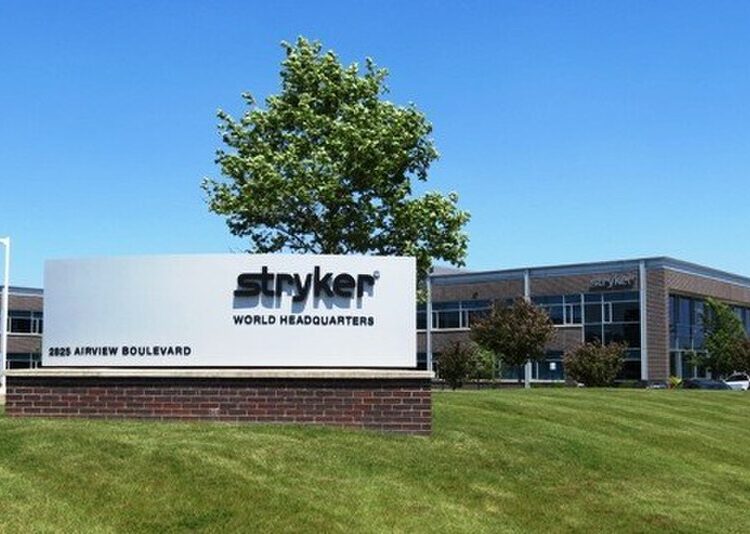Disappointing trial and legal troubles hit Bayer’s market value
- Bayer shares plunged by more than 20% after halting trial of potential blockbuster drug
- Trial for anti-thrombotic drug asundexian ended due to lack of efficacy
- Bayer’s Monsanto unit ordered to pay $1.56 billion in Roundup herbicide case
- Asundexian shown to be inferior to Pfizer and Bristol-Myers Squibb’s established drug in preventing strokes
- Bayer hoped asundexian would generate annual sales of over €5 billion
- Bayer’s new CEO faces challenges with pipeline weakness and ongoing litigation
- Bayer shares dropped 21% to lowest in 12 years
- Competitors’ shares also affected, with Bristol-Myers Squibb down 3% and Pfizer up less than 1%
- Frankfurt’s DAX index struggled, while CAC 40 in Paris rose and FTSE 100 in London fell
- Ashtead shares fell 10% after profit warning due to lower demand for equipment
- Julius Baer shares fell 12% after bank reduced profit forecasts
Bayer shares plummeted by more than 20% after the company halted a trial for its potential blockbuster drug, asundexian, due to a lack of efficacy. This news came just days after Bayer’s Monsanto unit was ordered to pay $1.56 billion in a Roundup herbicide case. Asundexian, which was being tested as an anti-thrombotic drug, was found to be inferior to Pfizer and Bristol-Myers Squibb’s established drug in preventing strokes. Bayer had high hopes for asundexian, aiming for annual sales of over €5 billion. However, this setback adds to the challenges faced by Bayer’s new CEO, including pipeline weakness and ongoing litigation. The disappointing trial results caused Bayer shares to drop 21%, reaching their lowest point in 12 years. Competitors’ shares were also affected, with Bristol-Myers Squibb down 3% and Pfizer up less than 1%. The news had a mixed impact on European stock markets, with Frankfurt’s DAX index struggling, the CAC 40 in Paris rising, and London’s FTSE 100 falling. Additionally, Ashtead shares fell 10% after the company issued a profit warning due to lower demand for its equipment. Julius Baer shares also fell 12% after the bank reduced profit forecasts amid rising credit provisions.
Factuality Level: 7
Factuality Justification: The article provides information about Bayer’s loss in market value and the reasons behind it, including the failed trial for the drug asundexian and the recent jury verdict against Monsanto. It also includes statements from analysts and the impact on Bayer’s stock. However, the article lacks in-depth analysis and context, and there is no mention of any counterarguments or alternative perspectives.
Noise Level: 3
Noise Justification: The article provides relevant information about Bayer’s loss in market value and the reasons behind it. It also mentions the recent jury verdict against Bayer’s Monsanto unit. However, the article lacks in-depth analysis and does not provide any actionable insights or solutions. It also includes unrelated information about other companies’ stock performance, which is not directly relevant to the main topic.
Financial Relevance: Yes
Financial Markets Impacted: Bayer’s market value decreased by a fifth due to the disappointing trial for the anti-thrombotic drug asundexian. Shares of Bristol-Myers Squibb and Pfizer were also affected.
Presence Of Extreme Event: No
Nature Of Extreme Event: No
Impact Rating Of The Extreme Event: No
Rating Justification: The article discusses the financial impact on Bayer due to the failed trial of the drug asundexian. It also mentions the decrease in shares of Bristol-Myers Squibb and Pfizer. However, there is no mention of an extreme event.
Public Companies: Bayer (BAYN), Monsanto (N/A), Pfizer (PFE), Bristol-Myers Squibb (BMY), Ashtead (AHT), Julius Baer (BAER)
Key People: Bill Anderson (CEO of Bayer), Charles Bentley (Analyst at Jefferies), Russ Mould (Investment Director at AJ Bell)
Reported publicly:
 www.marketwatch.com
www.marketwatch.com 





